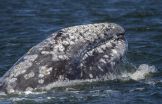Iceberg armadas not the cause of North Atlantic cooling
2015-04-15
(Press-News.org) Previous studies have suggested that pulses of icebergs may have caused cycles of abrupt climate change during the last glacial period by introducing fresh water to the surface of the ocean and changing ocean currents, which are known to play a dominant role in the climate of many of Earth's regions.
However, new findings by scientists at Cardiff University present a contradictory narrative and suggest that icebergs generally arrived too late to trigger marked cooling across the North Atlantic.
Abrupt climate change, characterised by transitions between warm and cold conditions across the North Atlantic, is a pervasive feature of the Late Pleistocene - the most recent period of repeated glacial cycles.
The occurrence of extremely cold conditions in the North Atlantic seems to have been linked to the dispersal of icebergs that have broken away from ice sheets bordering the North Atlantic. Yet to date there has been no consensus among climate scientists as to whether the breaking and dispersal of icebergs was a cause or a consequence of climate change.
A team of researchers from Cardiff University's School of Earth and Ocean Sciences used a sediment core retrieved from the North East Atlantic, just south of Iceland, to construct records of changing surface ocean temperature and the movement of iceberg debris over the last 400 thousand years.
"We found many examples of abrupt cooling events and many of these were paired with an increase in iceberg activity," said Dr Stephen Barker, who led the study. "However, crucially we found that in the majority of cases, icebergs appeared after cooling had occurred, meaning that icebergs arrived too late to have triggered cooling at this site - though may have have enhanced or prolonged these cold conditions.
"In fact our findings imply that abrupt cooling events were preceded by intervals of more gradual cooling, suggesting that the descent into colder conditions should be considered as a non-linear response to a more gradual change across the North Atlantic.
"We show that there is still much to learn about abrupt climate change. Specifically we have demonstrated that a fundamental idea on which many previous studies have been based needs to be reassessed. Our results suggest that alternative mechanisms need to be considered and that climate models need to be able to simulate these past changes if we are to have confidence in their ability to forecast future changes to the climate."
The researchers' conclusions are consistent with the findings of a ground-breaking study published in 1995, which pointed out that widespread breaking and dispersal of icebergs might be a consequence of climate change rather than the cause. Direct evidence in support of this theory, however, has largely been lacking until now.
In the next phase of their research, Dr Barker and his team will extend their investigations back to almost 2 million years. This will enable the team to reconstruct the nature of abrupt climate change throughout much of the Pleistocene period, yielding clues as to the influences of abrupt change on longer timescales.
INFORMATION:
The research was funded by Leverhulme Trust (UK), Global Climate Change Foundation (USA) and the Natural Environment Research Council (NERC).
Public link to the paper: http://dx.doi.org/10.1038/nature14330
For further information please contact:
Tomas Llewelyn Barrett
Public Relations
Cardiff University
Tel: 029 20 875 596
E-mail: BarrettTL1@cardiff.ac.uk
Mobile: 07950960968
Cardiff University
Cardiff University is recognised in independent government assessments as one of Britain's leading teaching and research universities and is a member of the Russell Group of the UK's most research intensive universities. Among its academic staff are two Nobel Laureates, including the winner of the 2007 Nobel Prize for Medicine, University Chancellor Professor Sir Martin Evans. Founded by Royal Charter in 1883, today the University combines impressive modern facilities and a dynamic approach to teaching and research. The University's breadth of expertise encompasses: the College of Arts, Humanities and Social Sciences; the College of Biomedical and Life Sciences; and the College of Physical Sciences and Engineering, along with a longstanding commitment to lifelong learning. Cardiff's four flagship Research Institutes are offering radical new approaches to cancer stem cells, catalysis, neurosciences and mental health and sustainable places.
ELSE PRESS RELEASES FROM THIS DATE:
2015-04-15
COLUMBIA, Mo. - Invasive pests known as spruce bark beetles have been attacking Alaskan forests for decades, killing more than 1 million acres of forest on the Kenai Peninsula in southern Alaska for more than 25 years. Beyond environmental concerns regarding the millions of dead trees, or "beetle kill" trees, inhabitants of the peninsula and surrounding areas are faced with problems including dangerous falling trees, high wildfire risks, loss of scenic views and increased soil erosion. Now, a researcher from the University of Missouri and his colleagues have found that ...
2015-04-15
Irvine, Calif., April 15, 2015 -- While recent reports question whether fish oil supplements support heart health, UC Irvine scientists have found that the fatty acids they contain are vitally important to the developing brain.
In a study appearing today in The Journal of Neuroscience, UCI neurobiologists report that dietary deficiencies in the type of fatty acids found in fish and other foods can limit brain growth during fetal development and early in life. The findings suggest that women maintain a balanced diet rich in these fatty acids for themselves during pregnancy ...
2015-04-15
California man Mike May made international headlines in 2000 when his sight was restored by a pioneering stem cell procedure after 40 years of blindness.
But a study published three years after the operation found that the then-49-year-old could see colors, motion and some simple two-dimensional shapes, but was incapable of more complex visual processing.
Hoping May might eventually regain those visual skills, University of Washington researchers and colleagues retested him a decade later. But in a paper now available online in Psychological Science, they report that ...
2015-04-15
NEW YORK (April 15, 2015) -- Weill Cornell Medical College investigators tried to validate a previously reported molecular finding on triple negative breast cancer that many hoped would lead to targeted treatments for the aggressive disease. Instead, they discovered that the findings were limited to a single patient and could not be applied to further clinical work. This discovery, published April 15 in Nature, amends the earlier work and underscores the importance of independent study validation and careful assay development.
The earlier - and now dispelled - study, ...
2015-04-15
GAINESVILLE, Fla. -- Oxycodone-related deaths dropped 25 percent after Florida implemented its Prescription Drug Monitoring Program in late 2011 as part of its response to the state's prescription drug abuse epidemic, according to a team of UF Health researchers. The drop in fatalities could stem from the number of health care providers who used the program's database to monitor controlled substance prescriptions.
"Forty-nine states have prescription drug monitoring programs of some kind, but this is the first study to demonstrate that one of these programs significantly ...
2015-04-15
COLUMBUS, Ohio--The unassuming piece of stainless steel mesh in a lab at The Ohio State University doesn't look like a very big deal, but it could make a big difference for future environmental cleanups.
Water passes through the mesh but oil doesn't, thanks to a nearly invisible oil-repelling coating on its surface.
In tests, researchers mixed water with oil and poured the mixture onto the mesh. The water filtered through the mesh to land in a beaker below. The oil collected on top of the mesh, and rolled off easily into a separate beaker when the mesh was tilted.
The ...
2015-04-15
April 15, 2015 - Most people who attempt suicide make some type of healthcare visit in the weeks or months before the attempt, reports a study in the May issue of Medical Care, published by Wolters Kluwer.
The study also identifies racial/ethnic differences that may help to target suicide prevention efforts in the doctor's office and other health care settings. The lead author was Brian K. Ahmedani, PhD, LMSW, of Henry Ford Health System, Detroit, Mich.
Health Visits May Provide Chances for Suicide Prevention
Using data from the NIMH-funded Mental Health Research ...
2015-04-15
Index shows nearly two points increase in EU overall, but Greece and Latvia fall behind
Sweden tops the table, while UK comes fourth with increase in line with EU average
A healthy and active old age is a reality for many Europeans and is a genuine possibility for many more, despite the 2008 economic crash and years of austerity measures, according to a new United Nations Economic Commission for Europe (UNECE) and European Commission (EC) report, produced at the University of Southampton.
However, countries such as Greece and Latvia have declined in active ageing ...
2015-04-15
New work by Ludwig-Maximilians-Universitaet (LMU) in Munich researchers demonstrates that macrophages can effectively substitute for so-called dendritic cells as primers of T-cell-dependent immune responses. Indeed, they stimulate a broader-based response.
The immune response, the process by which the adaptive immune system reacts to, and eliminates foreign substances and cells, depends on a complex interplay between several different cell types. So-called dendritic cells, which recognize and internalize invasive pathogens, play a crucial role in this process. Inside ...
2015-04-15
NEWPORT, Ore. - A team of scientists from the United States and Russia has documented the longest migration of a mammal ever recorded - a round-trip trek of nearly 14,000 miles by a whale identified as a critically endangered species that raises questions about its status.
The researchers used satellite-monitored tags to track three western North Pacific gray whales from their primary feeding ground off Russia's Sakhalin Island across the Pacific Ocean and down the West Coast of the United States to Baja, Mexico. One of the tagged whales, dubbed Varvara (which is Russian ...
LAST 30 PRESS RELEASES:
[Press-News.org] Iceberg armadas not the cause of North Atlantic cooling

